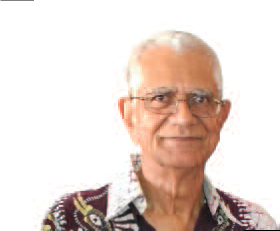By the time this column is being read, Nicolas Maduro may no longer be president of Venezuela. The successor to Hugo Chavez has run the country’s economy into the ground, with an inflation rate that could reach 10 million percent by year-end; for comparison, in the U.S. it is under three percent. An estimated three million Venezuelans have fled to neighboring countries.
Maduro served six years and claimed victory in an election late last year widely regarded as rigged and took the oath of office in January. Massive street protests have become a daily routine and a young politician, Juan Guaido, emerged as Maduro’s main opponent, calling on him to resign and declaring himself interim president.
So far so good. A country in crisis was seeking to resolve its problems. But that illusion quickly ended with news that Guaido spoke to American officials before his declaration and President Donald Trump quickly recognized him as interim president and imposed economic sanctions on the country and its leadership. Several other countries followed Trump’s lead in recognizing Guaido, with the notable exception of China and Russia.
Maduro can be forced out by the street demonstrations, growing international isolation or by his military. U.S. Senator Marco Rubio, RFla., in a Miami Herald commentary almost a year ago, called on the army to oust Maduro.
But Latin America has suffered greatly at the hands of their militaries, notably the 1973 bloody coup in Chile in which General Augusto Pinochet toppled and killed the elected president, Salvador Allende, and installed a brutal, repressive regime. (It is worthy of mention that a number of the so-called libertarians in America who had been planning strategies to replace popular government with rule by economic dominance advised Pinochet on Chile’s new constitution which was regarded as the most repressive in the world, as Nancy MacLean noted in her book “Democracy in Chains.”)
The military has remained loyal to Maduro but may yet succumb to overtures from Guaido and Trump to oust him. Further, Trump has refused to rule out U.S. military action, for which there is ample precedence.
The Associated Press has listed 15 U.S. interventions in Latin America, starting with the invasion of Mexico in 1846 and including five others: Brazil (1964), Dominican Republic (1965), Grenada (1983), Panama (1989) and Haiti (1994). Chavez himself said the U.S. was behind a coup which toppled his socialist government in 2002, though he was back in office in two days.
Still, there are good reasons why Maduro should resign. Rubio, in his February 2018 Herald commentary, referred to Venezuela’s dire circumstances when he cited a report on the subject and said, “Chronic and infectious diseases are rampant and hospitals lack adequate supplies to care for their patients, inflation is now 4,000 percent and even the Venezuelan military and those once loyal to Maduro are desperate for food. In turn, an estimated 1.2 million refugees have fled the Venezuelan crisis for neighboring countries in the last two years.”
That is in sharp contrast to the 2002s, when the oil boom brought in one trillion dollars, which Chavez spent generously on economic and social programs. “Under his rule, Venezuela’s unemployment rate halved, income per capita more than doubled, the poverty rate fell by more than half, education improved and infant mortality rates declined,” Vox reported.
Maduro inherited an economy that had not diversified from oil and, after prices plummeted in 2014, it went into a tailspin and he has not been able to halt the decline. “The government is so broke it can no longer afford to fly in the planesful of fast depreciating bolivar bills it gets printed abroad; in effect, the country doesn’t have the money to pay for its money,” Vox reported.
Ideally, Maduro should resign or at least hold fresh elections urgently. Mexico is among countries that have called for talks to end the crisis but Guaido has ruled out any negotiations. So the stalemate drags on, with Maduro evidently believing, wrongly, that in holding on he is preserving the legacy of Chavez and Chavismo.
The crisis could tempt other nations to use any means to remove him, especially the U.S., but why the rush to force regime change in Venezuela when the Maduro government poses no national security threat? If American power is to be deployed against regimes that brutalize their peoples, there are many worse cases deserving attention, especially in Africa and the Middle East.
If by now Maduro has resigned, it’s all for the best. Otherwise, he is giving Trump an opportunity to use the crisis to distract attention from his domestic problems, including the border wall controversy and the Russia probe. And a Venezuela under the heels of the American extreme right will be an opportunity to replicate the model which James Buchanan and Milton Friedman created in Chile, to devastating effect.
After all, with Brazil and El Salvador now having “conservative” leaders, putting Guaido among them will increase the pace at which the dominoes will topple – in the opposite direction to what Henry Kissinger feared.
Who’s next?













No Comment